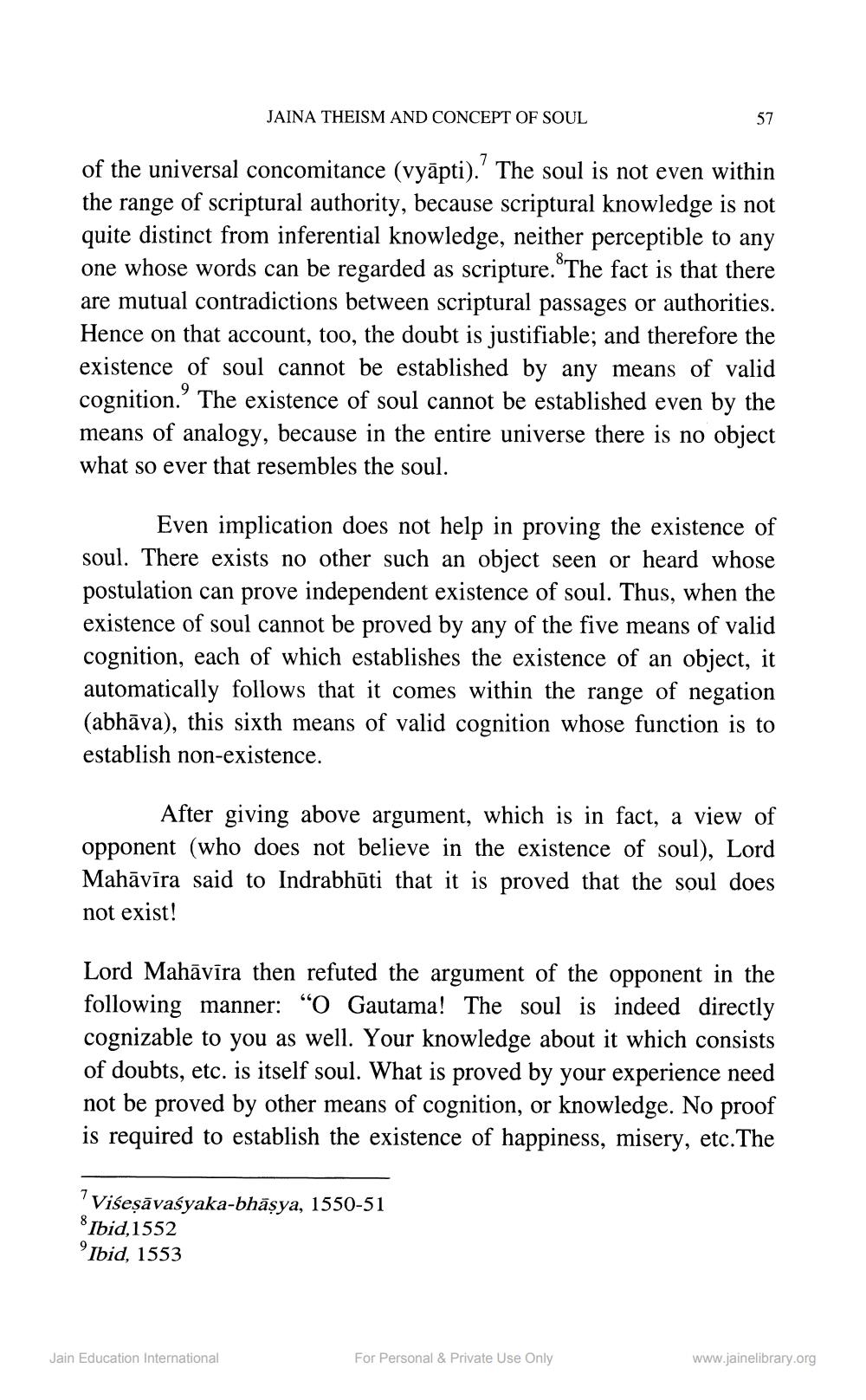________________
JAINA THEISM AND CONCEPT OF SOUL
7
of the universal concomitance (vyapti). The soul is not even within the range of scriptural authority, because scriptural knowledge is not quite distinct from inferential knowledge, neither perceptible to any one whose words can be regarded as scripture. The fact is that there are mutual contradictions between scriptural passages or authorities. Hence on that account, too, the doubt is justifiable; and therefore the existence of soul cannot be established by any means of valid cognition. The existence of soul cannot be established even by the means of analogy, because in the entire universe there is no object what so ever that resembles the soul.
Even implication does not help in proving the existence of soul. There exists no other such an object seen or heard whose postulation can prove independent existence of soul. Thus, when the existence of soul cannot be proved by any of the five means of valid cognition, each of which establishes the existence of an object, it automatically follows that it comes within the range of negation (abhāva), this sixth means of valid cognition whose function is to establish non-existence.
After giving above argument, which is in fact, a view of opponent (who does not believe in the existence of soul), Lord Mahāvīra said to Indrabhūti that it is proved that the soul does not exist!
57
Lord Mahāvīra then refuted the argument of the opponent in the following manner: "O Gautama! The soul is indeed directly cognizable to you as well. Your knowledge about it which consists of doubts, etc. is itself soul. What is proved by your experience need not be proved by other means of cognition, or knowledge. No proof is required to establish the existence of happiness, misery, etc. The
Viseṣāvasyaka-bhāṣya, 1550-51
Ibid,1552
Ibid, 1553
Jain Education International
For Personal & Private Use Only
www.jainelibrary.org




